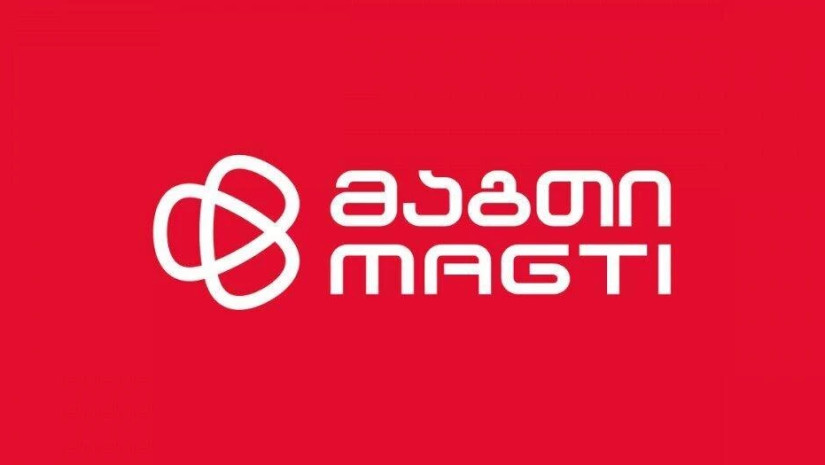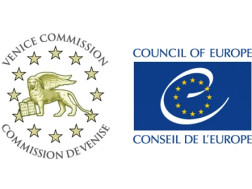Magticom released a statement regarding GNCC's annual report for 2020 and emphasized that it's "fraught with manifestly ill-founded and downright false information."
BMG offers the statement unchanged:
"The Communications Commission masquerading as the fighter against fake news has itself engaged in spreading fake news
Communications Commission’s Annual Report for 2020 – genuine or made up?
The Communications Commission’s Annual Report for 2020 is deliberately designed to mislead the public, spread false information and discredit the companies.
The Commission’s Report is fraught with striking examples of ill-founded assumptions and misstatement of facts. To illustrate, we’ll cite just a few of them below:
Amendments made to the Law of Georgia on Electronic Communications
The Commission hails the amendments made to the Law of Georgia on Electronic Communications as success and a beneficial and positive event for the State despite the public knowledge of the Venice Commission’s extremely negative opinion on the amendments (references – page 12 of the Commission’s Report for 2020 and the Opinion of the Venice Commission.
Besides, inefficiency of the recent legal amendments are corroborated by the fact that since the Special Manager was appointed in Caucasus Online, even the 51% shareholding interest has been sold without the Commission’s approval.
Mandatory access regulation of Mobile Virtual Network Operator (MVNO)
The attempt to justify the regulation requiring the incumbent undertakings to provide mandatory MVNO access with absurd and ill-founded arguments, having regard to the fact that no Member-State in the European Union has introduced any regulation in such form, turns the Georgian National Communications Commission into a party siding with potential MVNOs and deprives it of the role of a neutral arbiter regulating the sector. In particular:
- Attempting to “back up” the need to provide MVNO mandatory access with ITU recommendation (page 15 of the Commission’s Report for 2020), the Commission claims that if the operating margin is higher than 25%, this demonstrates the need to provide mandatory MVNO access. This is a lie, as the recommendation referred to by the Commission is not related to ITU. Rather, it is a document published by a natural person 20 years ago. In this regard, the Commission drew a detailed response by the international audit and consulting companies BDO LLC and Kalba International, Inc. (p. 11)
- The Commission claims (page 15 of the Commission’s Report for 2020) that the operating margins (EBITDA) of mobile operators were higher than 40% but the companies had not reduced charges for their communications services. Even a greenhorn financial analyst is well aware that the operating margin and EBITDA are different terms. The existence of a high EBITDA alone does not mean that the company is making a profit. It is a fact that two of the three incumbent undertakings with significant market power in the market have incurred net losses for several years (the supporting accounts are publicly accessible on the portal of Service for Accounting, Reporting and Auditing Supervision of Office of the Ministry of Finance of Georgia - reportal.ge).
- The Commission’s positions on tariffs are mutually exclusive. The Commission’s Annual Reports for 2019 and 2020 contradict each other. While the Commission’s Annual Report for 2019 reads (p. 30) that the retail market was competitive and no need for imposing a regulation had been identified, in its Annual Report for 2020 the Commission concludes (page 16), despite more affordable packages and lower prices having appeared in the market, that competition is limited and rates are high.
- According to page 15 of the Commission’s Annual Report for 2020, the Communications Commission seems not to interfere with the tariff regulation, leaving the pricing aspect on commercial terms among the undertakings. However, this is yet another lie – the Commission does interfere with both access and tariff regulation by introducing a compulsory methodology to calculate prices (Retail-Minus Methodology), if the parties fail to agree.
- According to page 15 of the Commission’s Annual Report for 2020, small and medium-size operators are claimed to have applied to the undertakings with significant market power for access to their networks and facilities as MVNOs but to no avail. This, too, is pure lie – there is not even a single occasion, on which the undertakings with significant market power denied MVNOs access and no complaint has been lodged with or heard by the Communications Commission in this regard. Moreover, not even a letter of application has been filed by anyone seeking access as an MVNO.
- According to page 15 of the Commission’s Annual Report for 2020, “… summing up the current competition in the market, EY’s Report finds that the improvement of the competition requires a proper regulation.” In reality, though, the EY Report (on page 5) reads that “EY has not conducted an analysis/study on the need for MVNO regulation in Georgia, the relevant analysis has been prepared by GNCC.”
- MVNO Mandatory access in Georgia has drawn negative reviews by leading audit companies out of economic as well as cybersecurity considerations (in particular, the reports issued by the G6 audit companies - Deloitte; KPMG; BDO; Grant Thornton; RSM; Nexia International that conducted comprehensive analyses of the impact that the introduction of the binding obligation to grant MVNOs access may have on the Georgian market)
As it has been made public, none of the incumbent mobile network operators in Georgia opposes a mutually beneficial B2B relationship withMVNOs on a non-obligatory basis, free of interference on the part of the regulatory authority. Rather than being a forced one, such a relationship must be based on partnership, as has been practiced across EU Member-States. Two of the three mobile network operators in Georgia have incurred net losses! And the mobile communications services in Georgia are one of the cheapest across Europe even by the study that the Commission has conducted (p. 6). A logical question arises: for what or for whom are MVNOs being brought in Georgia in a binding (forced) procedure?
Regulating the retail market for mobile communications services
According to page 21 of the Commission’s Annual Report for 2020, “with a view to protecting consumer interests and maintain the affordability of tariffs, the Communications Commission adopted a critically important decision – Magticom, Silknet and Veon Georgia (with Beeline as a brand name) may no longer increase their rates for mobile services without the Communications Commission’s approval.” In reality, though, this is a decision that harmfully affects the sector that has no analogy in any of the EU Member-States. Retail rates are not regulated by the regulatory authority in any of the EU Member-States.
Miscellaneous
In general, it should be noted that the information provided in the Commission’s Annual Report for 2020 has a structure typical for the so-called fake news: first, it gives a few correct facts (for instance, Magticom and Silknet hold substantial shares of the market; there are relatively low-price offers available in the market, etc.), then it develops discussions and arrives at conclusions in such a logic that in no way arises out of such facts given earlier but does suit the Commission. And this is not the first time that the Commission has done it so. As a matter of fact, pretending to fight fake news, the Commission resorts to fake news and attempts to establish such a practice.
The Commission must normally be comprised of five members. Currently, the Commission is comprised of four members. The authority of the member whose seat has so far been vacant ceased in October 2019. It is rather surprising that the requirement of the Law on Broadcasting to hold by competitive selection in order to fill the opening of a ceased member within 10 days from such cessation has so far been ignored. The same law provides for the necessity to fully staff the Commission – the Commission may by a four/fifth majority of all of its members vote to dismiss the Chairman. Therefore, the rhetorical question arises: is this why the law has been ignored and is this also why the Commission’s Annual Report for 2020 is silent on the issue?
The Commission’s Annual Report for 2020 makes it abundantly obvious that rather than being “the architect of the sector,” as the Commission refers to itself, the Commission actually acts as a police authority hampering the development of the sector whose pressure and “bullying” adversely affect the development of the companies as well as of the entire industry. We, the companies rather than devoting our thoughts and efforts aimed at developing the sector, have been reduced to accommodating unreasonable demands and whims of the Commission.”
















